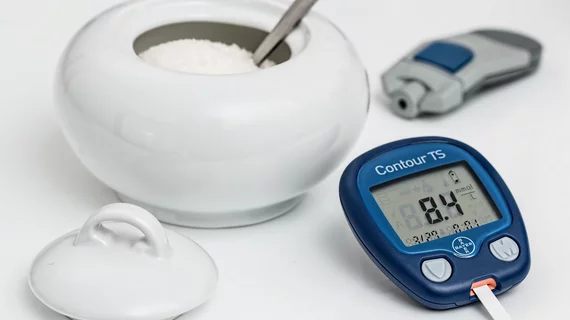People with diabetes open to remote digital monitoring; more concerned about intrusiveness than AI per se
Diabetes patients offered remote digital monitoring are warmly receptive to the concept as long as its adoption doesn’t mean signing up for either of two ongoing interventions. One is remote food monitoring. The other is real-time feedback—whether from a live healthcare professional or an AI algorithm.
If remote food monitoring or real-time feedback are to be included, many of these patients will demand evidence of compelling health improvements in exchange for being so bothered.
This is what researchers found when they surveyed more than 1,000 individuals with diabetes in 30 countries.
Meanwhile well more than half the respondents, some 65%, indicated they’d adopt remote digital monitoring even if it were no better, or only marginally so, at improving their health than conventional monitoring.
The team’s study report is posted in JAMA Network Open.
The research was coordinated at the University of Paris, and the report’s co-authors include Victor Montori, PhD, of Mayo Clinic and Philippe Ravaud, PhD, of Columbia University.
The study design required survey participants to assess three scenarios randomly selected from a field of 36 created for the study.
The scenarios presented varying levels of intrusiveness by mixing and matching combinations of digital monitoring tools (glucose, physical activity, food monitoring), duration and feedback loops (feedback in consultation vs. real-time tele-feedback by a healthcare professional or by artificial intelligence), and data handling modalities (by a public vs private company).
Commenting on respondents’ overall openness to remote digital monitoring, the authors suggest the technology stands to offer advantages to physicians as well as patients.
“First, technological developments could lead to less intrusive monitoring, thereby reducing the magnitude of health benefits required to adopt [the technology],” they write. “Second, patients who require substantial benefits to adopt remote digital monitoring could benefit from interventions designed to reduce barriers to [the technology’s] adoption.”
“There is potential for large-scale implementation of remote digital monitoring in diabetes care,” the authors conclude. “The variability in patients’ preferences should be considered in the design of minimally disruptive digital health tools as well as by physicians prescribing remote digital monitoring.”
Full study here.

